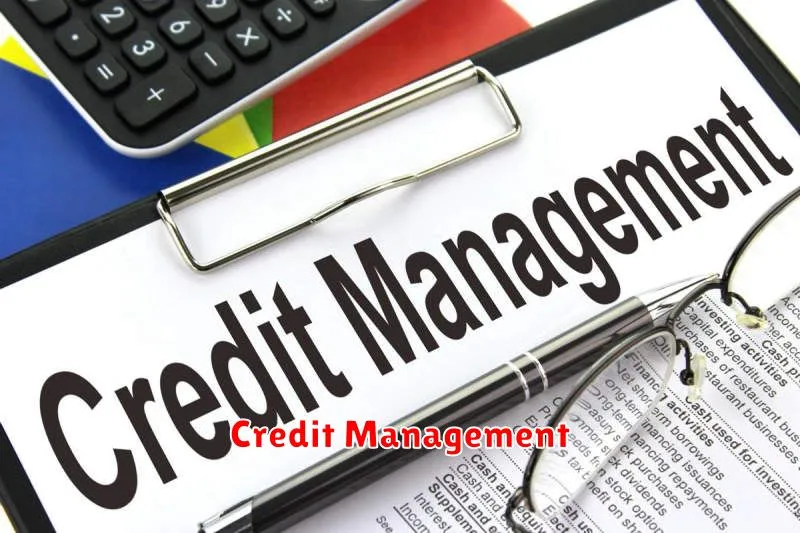Are you ready to take control of your finances and build a brighter future? Credit can be a powerful tool to achieve your financial goals, but it’s essential to use it wisely. Mismanaging credit can lead to debt, stress, and damage to your financial well-being. This article provides a comprehensive guide on how to use credit responsibly, helping you unlock its potential while avoiding common pitfalls.
From understanding credit scores and reports to exploring different types of credit cards and loans, we’ll cover everything you need to know to make informed financial decisions. Learn how to establish good credit habits, manage debt effectively, and leverage credit to your advantage. By mastering the principles of wise credit management, you can pave the way for a secure and prosperous financial future.
Understanding the Role of Credit in Your Financial Life

Credit plays a pivotal role in achieving your financial goals. It’s not simply about borrowing money; it’s about building a positive credit history that opens doors to financial opportunities. A good credit score translates to lower interest rates on loans, better terms on credit cards, and even easier access to rental properties.
Think of credit as your financial reputation. Responsible credit card use and timely bill payments demonstrate financial trustworthiness to lenders. This trustworthiness allows you to access funds for major purchases like a home or car, often with more favorable terms. However, mismanaging credit—making late payments or accumulating high debt—can negatively impact your score, making it harder and more expensive to borrow money in the future.
Understanding how credit works is essential for making informed financial decisions. By using credit wisely, you can leverage its power to build a strong financial future.
How to Build and Maintain Good Credit
Building and maintaining good credit is crucial for a strong financial future. Your credit score, a numerical representation of your creditworthiness, impacts your ability to secure loans, rent apartments, and even land certain jobs. Here’s how to establish and maintain excellent credit:
1. Get a Credit Card and Use it Responsibly: One of the primary ways to build credit is to obtain a credit card and use it wisely. Charge small amounts regularly and pay off the balance in full and on time. This demonstrates your ability to manage credit responsibly.
2. Make All Payments On Time: Timely payments are the most significant factor influencing your credit score. Set reminders or automate payments to ensure you never miss a due date for credit cards, utilities, or loans.
3. Keep Credit Utilization Low: Your credit utilization ratio, the amount of credit you use compared to your total available credit, should ideally stay below 30%. High utilization can signal financial strain to lenders.
4. Monitor Your Credit Report Regularly: Access your credit report from all three bureaus (Experian, Equifax, TransUnion) annually for free at AnnualCreditReport.com. Review for errors and dispute any inaccuracies promptly.
5. Build Credit History Over Time: Establishing a positive credit history takes time. Avoid closing old credit cards as it can shorten your credit history length, which is a factor in your score.
The Dos and Don’ts of Using Credit Cards
Credit cards can be powerful tools for building a strong financial future, but only when used responsibly. Here’s a breakdown of the essential dos and don’ts to ensure you’re using credit to your advantage.
Do’s
Pay your balance in full and on time, every time. This is the golden rule of credit card use. It helps you avoid interest charges and late fees, which can quickly derail your finances.
Keep your credit utilization low. Aim to use less than 30% of your available credit limit. This demonstrates responsible credit management to lenders and helps improve your credit score.
Track your spending. Regularly review your credit card statements to monitor your spending habits. Catching potential issues early can prevent overspending and debt accumulation.
Take advantage of rewards and benefits. Many credit cards offer cashback, travel points, or other perks. Use these to your advantage, but only if they align with your spending habits and you can pay off the balance in full.
Don’ts
Don’t live beyond your means. Credit cards are not an extension of your income. Only charge what you can afford to repay within a billing cycle.
Don’t miss payments. Late payments negatively impact your credit score and can lead to hefty fees.
Don’t max out your credit cards. High balances hurt your credit utilization ratio, signaling financial strain to lenders.
Don’t apply for too many credit cards at once. Each application triggers a hard inquiry on your credit report, which can temporarily lower your score.
By following these dos and don’ts, you can leverage credit cards as valuable financial instruments. Remember, responsible credit card use is crucial for building a secure and prosperous financial future.
How to Monitor Your Credit Report for Errors

Monitoring your credit report for errors is crucial for maintaining a healthy credit history. Regularly reviewing your report allows you to catch inaccuracies that could potentially lower your credit score and hinder your ability to access financial products.
You are entitled to a free credit report from each of the three major credit bureaus – Equifax, Experian, and TransUnion – every 12 months through AnnualCreditReport.com.
When reviewing your report, pay close attention to personal information such as your name, address, and Social Security number, ensuring accuracy. Scrutinize all account information, verifying that the details of your open and closed accounts, including balances and payment history are correct.
If you identify any errors, immediately dispute them with the respective credit bureau. Provide supporting documentation to validate your claim and request a correction.
Tips for Using Credit to Achieve Financial Goals
Credit, when used responsibly, can be a powerful tool to help you reach your financial goals. Whether you’re aiming to buy a home, start a business, or simply manage your finances more effectively, strategic credit utilization can pave the way. Here are some tips to make credit work for you:
1. Build a Good Credit History: A strong credit score unlocks favorable interest rates and loan terms. Pay your bills on time, maintain low credit card balances, and avoid unnecessary credit applications to build a positive credit history.
2. Set Clear Financial Goals: Identify what you want to achieve with credit. Having specific goals, such as a down payment on a house, allows you to create a targeted plan for utilizing credit wisely.
3. Budget for Credit Payments: Before taking on debt, factor in monthly payments into your budget. Ensure you can comfortably afford the repayments without straining your finances.
4. Use Credit for Strategic Purchases: Focus on using credit for investments that can yield long-term value, such as education, a home purchase, or a business loan. Avoid using credit for discretionary spending that can lead to debt accumulation.
5. Avoid Maxing Out Credit Cards: High credit utilization ratios can negatively impact your credit score. Aim to keep your credit card balances below 30% of your available credit limit.
6. Shop Around for the Best Rates: Interest rates and loan terms can vary significantly among lenders. Compare offers from multiple institutions to secure the most favorable terms before committing to a loan.
7. Review Credit Reports Regularly: Monitor your credit reports for errors or inaccuracies that could be affecting your score. You’re entitled to free credit reports annually from the major credit bureaus.
8. Seek Professional Guidance: If you’re unsure about navigating credit, consider consulting with a financial advisor. They can provide personalized advice tailored to your financial situation and goals.
Remember, responsible credit utilization involves careful planning, disciplined spending habits, and a clear understanding of the terms and conditions associated with credit products. By following these tips, you can leverage credit to your advantage and build a stronger financial future.
How to Avoid Common Credit Mistakes
Building a strong financial future relies heavily on using credit wisely. This means understanding how credit works and actively avoiding common pitfalls that can negatively impact your credit score. A lower score translates to higher interest rates and fewer lending opportunities. Let’s explore some of the most prevalent credit mistakes and how you can steer clear of them.
1. Maxing Out Credit Cards: While it might be tempting to use all available credit, maintaining a low credit utilization ratio (the amount of credit you use compared to your total limit) is crucial. Aim to keep your balances below 30% on all cards.
2. Missing Payments: Payment history carries significant weight in determining your score. Set up payment reminders or utilize autopay to ensure you never miss a due date, even if it’s just the minimum amount.
3. Closing Old Accounts: It might seem counterintuitive, but closing old, unused accounts can actually hurt your score by shortening your credit history. Longer credit histories generally reflect positively on your reliability.
4. Applying for Too Much Credit at Once: Each credit application generates a “hard inquiry” on your report, which can temporarily lower your score. Space out credit applications, especially for major loans or credit cards.
5. Ignoring Your Credit Report: Regularly review your credit report from all three bureaus (Experian, Equifax, and TransUnion) for inaccuracies or signs of fraud. You’re entitled to one free report from each bureau annually.
By understanding and actively avoiding these common credit mistakes, you’ll be well on your way to building and maintaining a healthy credit history, paving the path for a secure and prosperous financial future.
The Impact of Credit on Your Financial Future
Credit plays a pivotal role in shaping your financial future, impacting your ability to make major purchases, secure loans, and even rent an apartment. Responsible credit use can pave the way for financial stability and growth, while misusing credit can lead to a cycle of debt and financial strain.
Positive Impact: Building a strong credit history, reflected by a high credit score, opens doors to lower interest rates on loans, better credit card terms, and increased financial opportunities. This can translate to substantial savings over a lifetime and provide greater financial flexibility.
Negative Impact: Conversely, poor credit management can result in a low credit score, making it difficult to obtain loans, acquire favorable interest rates, and may even limit employment options. High levels of debt can lead to financial stress, limit your ability to save and invest, and hinder your overall financial well-being.

